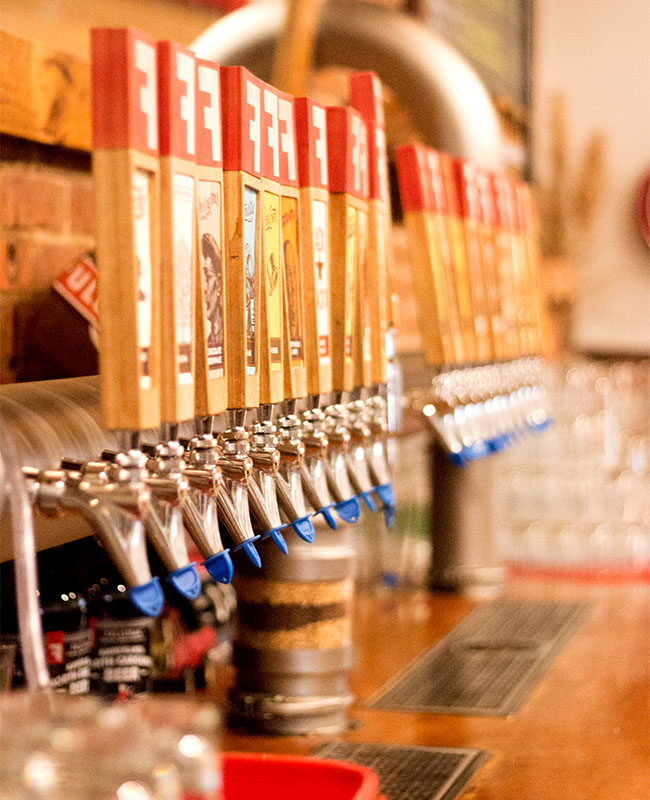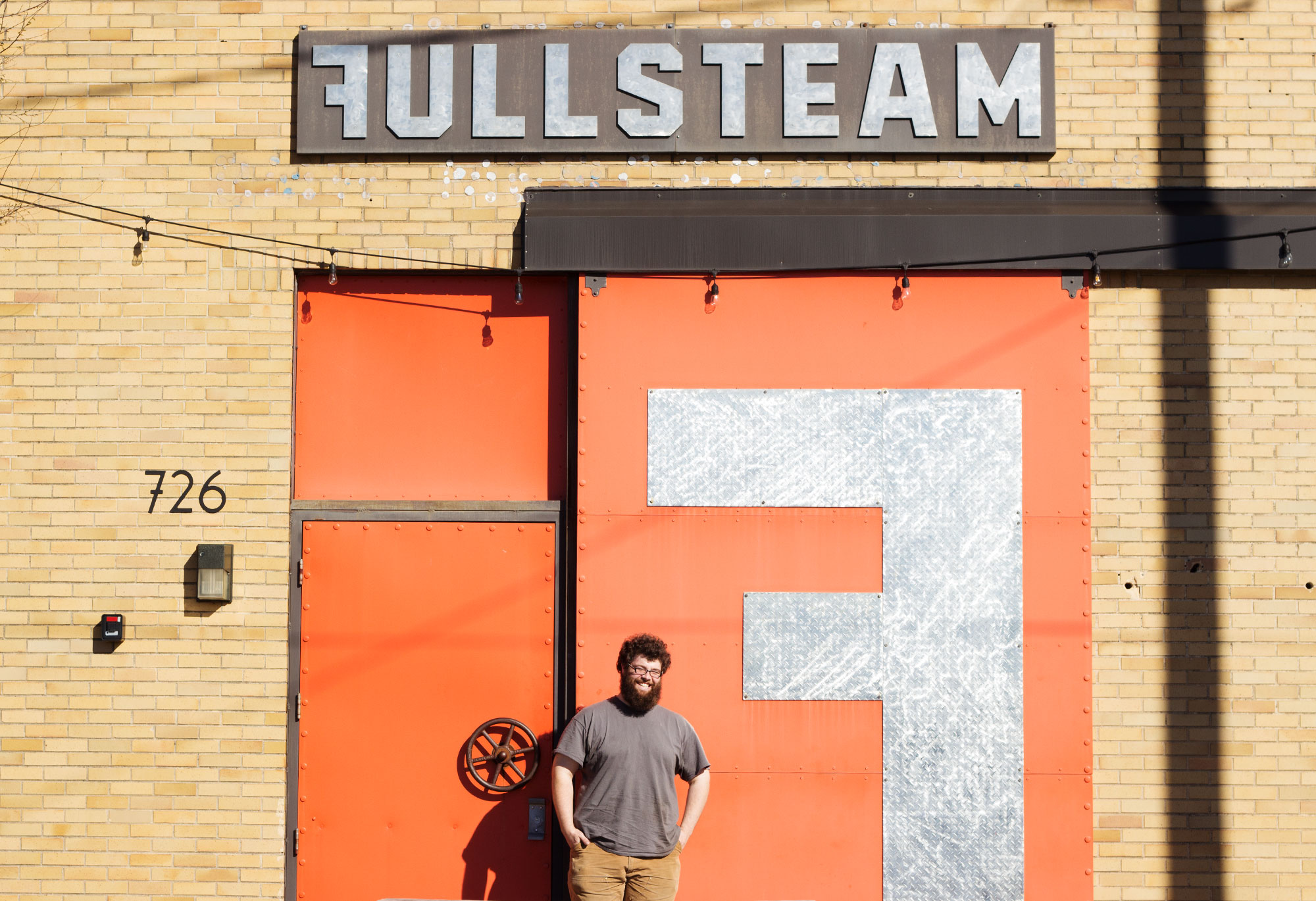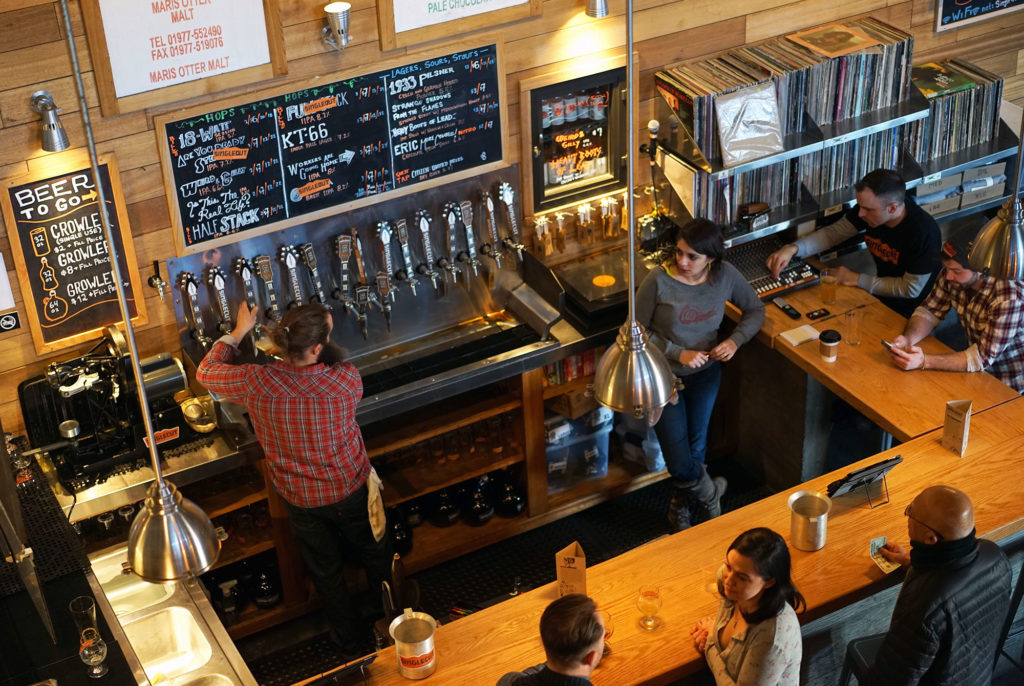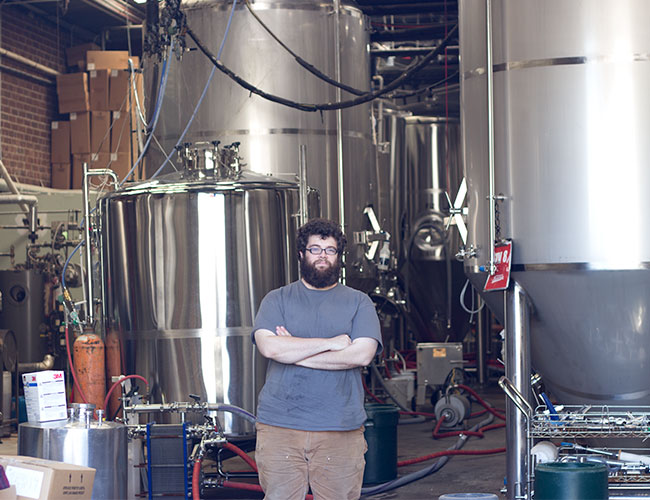Shop
How One Brewery Is Defining Southern Beer
At Fullsteam in Durham, NC, local ingredients are used to revitalize an industry, and make delicious beer.
While the phrase “craft beer” often conjures images of California, Colorado, or New England, there’s a new region emerging that deserves some respect: The Southeast, though still relatively young in beer years, has gained momentum over the past decade and is now hitting its stride.
To wit: I sat down with Brian Mandeville, head brewer of Fullsteam Brewery in Durham, North Carolina, to discuss the uptick of Southeast craft breweries, which he likened to “a bag of popcorn going off.” As of 2015, the nine American states with the fewest breweries were all located somewhere in the South. But that’s changing.
Fullsteam Brewery was launched in 2010 with a mission to create distinctly Southern beer that celebrates the culinary and agricultural traditions of the South. Mandeville, a political science major originally from Georgia with a unique interest in fermentation, was drawn to it immediately. “I grew up in a household that viewed alcohol more as food than just another entity…and I had a lot of friends and family push me towards trying to make a career out of it,” he said. After gaining experience with a few other breweries, he realized he was searching for something more than just creating great beer.
“Beer can be a vehicle for progressive change…a way to connect people with things that we as a society have lost touch with.”
“I was really interested in working with foraged ingredients,” Mandeville said, “and what originally caught my eye with Fullsteam was their beer First Frost.” Made with American persimmons, it highlights a widespread yet largely forgotten ingredient. To bring in the fruit, Fullsteam literally puts out a bounty. “People from all over the state bring [them] in and we pay them — it really turns into a community foraging project,” said Mandeville.
Revitalizing agriculture in North Carolina is a central pillar to Fullsteam’s success. Mandeville believes that “beer can be a vehicle for progressive change…a way to connect people with things that we as a society have lost touch with.” In order to bridge the gap between producer and consumer, the brewery goes beyond simply buying local. From ingredients to marketing, Fullsteam incorporates agricultural elements to connect its beer to the drinking public — from plow to pint.
So what does a southern beer taste like? Well, as it turns out, “a lot of the original ‘style’ is very intentional,” said Mandeville, the product of having certain ingredients and water immediately on hand. Now that technology has advanced, a discernible style is harder to pin down.
“It’s focusing both on beers that make sense to be enjoyed [here], but even if they traveled away, could get people to understand something about this region and the flavors of this area,” Mandeville said.
Take, for example, two critical ingredients to beer: hops and yeast.
Yeast is found naturally throughout the state, distinctly adapting to the region in which it grows. It’s broad variety of tastes make it one of the most extreme examples of terroir in beer, and is the reason the brewery puts such effort into finding different strands nearby. “We can find examples in the wild that display aromas and flavors which are totally unique to themselves,” Mandeville said, noting that he considers it to be a defining feature of the region’s beer.
Hops, on the other hand, are not a very efficient use of the land, and therefore have not historically been grown in the area. Fullsteam recognizes this, and instead of attempting to convert the landscape to fit their brewing needs, they instead shift their focus towards incorporating produce that is locally grown (e.g., sweet potatoes). Of course, hops are still used, but Fullsteam’s purposeful emphasis on Carolina-grown ingredients allows the brewery to support local agriculture while helping define the notion of a “southern beer.”
In the age of possibility, Fullsteam is the embodiment of a trend to recognize local roots.
In the age of possibility, Fullsteam is the embodiment of a trend to recognize local roots. The beer goes far beyond the physical ingredients and instead focuses on the philosophy behind making it. By intentionally focusing on the entire development process, they are able to develop awareness beyond solely the brew itself. It’s what pulled Mandeville to the brewery in the first place. “We [look] forward with a nod to tradition, acknowledging where we came from as well as hoping for a brighter future,” he said.
One of the first seasonal beers Fullsteam ever implemented was called Southern Basil, which showcased local basil. It was meant as a sort of test-run, featuring the basil of one farmer to create a single batch. It has since grown into a recurring summer seasonal that incorporates more than a dozen farms every year. “One of the cool things about basil…there’s variation. At each farm, the basil tastes and smells a little different,” said Mandeville.
An increase in demand for native ingredients has spurred the emergence of new southeastern craft breweries, while at the same time, the expansion of these breweries creates new opportunities for the local agriculture industry to sell their products. “It’s not just the fact that craft brewing is growing in the state that is causing [this expansion], it’s that the industry is looking to source their ingredients closer to home,” said Mandeville.

In the face of a large decline in the U.S. tobacco industry, a major goal of Fullsteam is to help some of that land stay in agriculture.
It’s this way of thinking that has started the positive feedback loop we are seeing in the region’s craft brewing industry. North Carolina has an immense amount of farmland in the state, much of which is tobacco driven, stemming from the state’s traditional dependence on the good as a cash crop. In the face of a large decline in the U.S. tobacco industry, a major goal of Fullsteam is to help some of that land stay in agriculture. By helping define the Southern beer economy with local ingredients, they are both distinguishing themselves and creating a productive environment representative of the existing culture.
Despite all of the heavy beliefs, Mandeville knows that a key purpose of their beer is not necessarily the drink itself, but rather what it encourages. “It speaks a lot to what it means to make a Southern beer,” he said, “The connection is with the beer and the South, but it’s ultimately with who you’re sitting across the table from.” Alongside their efforts to revitalize agriculture in the state, Fullsteam hopes that they are able to contribute to the growing identity of craft beer in the south, through both taste and culture.





